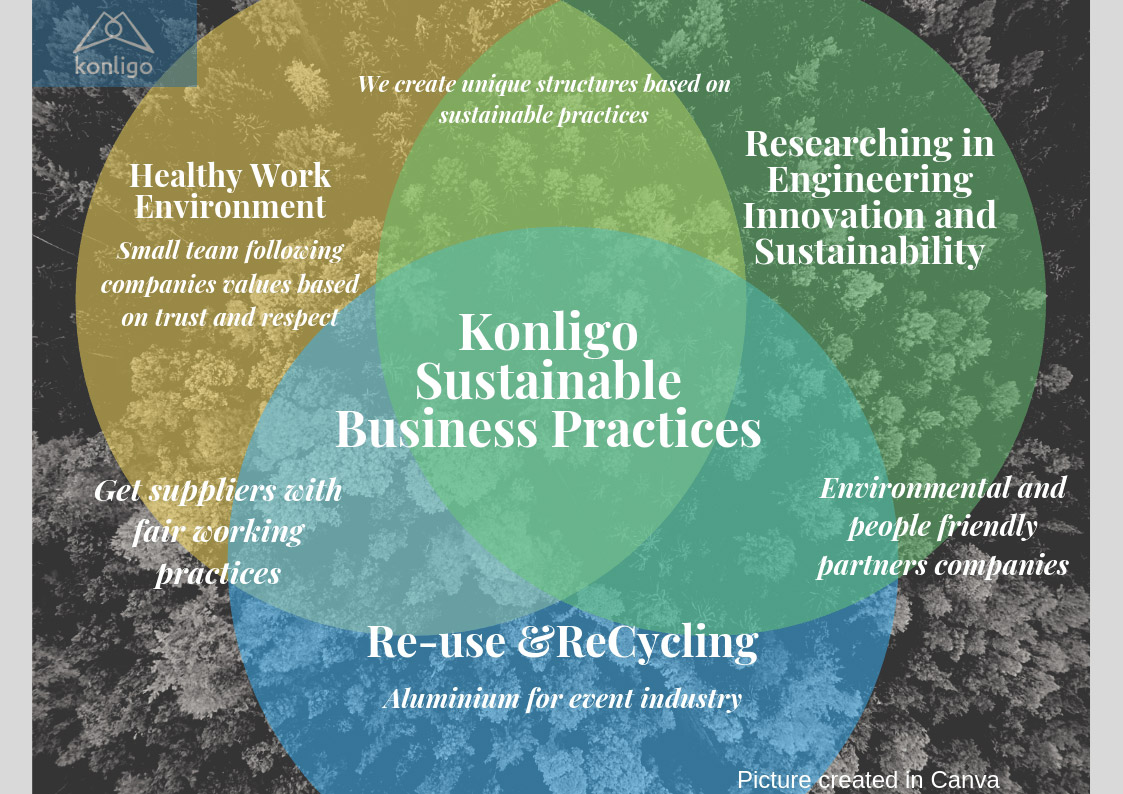A sustainable business model?

A sustainable business model?
If we start to think about it and look back at how business life has enormously evolved during the last two centuries, who would have thought that industrialization and its practices would get a bad image, and posteriorly the resulting consumerism and waste (like plastic o.a.) must find an end.
Industrialization helped in making our lives easier by increasing our agriculture production and feeding the fast-growing population. People were moving to the cities because men working in the fields were no longer needed. Then, plastic was created and its use increased extremely fast, easily becoming the replacement of other materials due to its ephemeral value.
At that time, people only saw short-term benefits and how life was becoming more practical and easier. Not only private daily life, but also businesses didn’t miss the opportunity to spread and use industrialized technologies and products.
People started to consume indiscriminately and consequently getting rid of stuff as they used it.
Looking towards change
Nowadays we are heading towards developing a long-term vision regarding our planet’s resources. We try to solve the problem before we create it. Indeed we cannot hide our problems on waste islands abandoned in the middle of the sea or dig it deep enough in the ground. Ideas are rapidly transforming as effective solutions: recycling? circular economy?
People are realizing the mess mankind has made and is still making. But actions are starting to rise and finally we can agree that sustainability is the new necessary trend, also in today’s business life.
New ways of doing business
Many companies from all around the world, particularly right after the agreement of Agenda 2030 for sustainable development, have started to modify their business practices and greening up. In fact, many new companies, and especially start-ups are born inspired by this boom. Even multinationals are adopting in a way it is now expected from them.
Being sustainable, is it a long-term necessity or a temporary trend? At least many theoreticians agree upon it and support it globally. There are plenty of benefits linked to sustainability, such as tax reduction, a fact that can be quite interesting for many companies due to the immediate benefit that it will provide them.
As things will change there are many possibilities in improving the working atmosphere and workplaces. Getting sustainable supplies, water filters, plants and recycling in a proper way will have a positive effect on the working conditions and wellbeing of employees. But a step ahead – and maybe even a must - is creating jobs and companies or organizations fully based on the sustainability and circular economy concept.
The media’s role in shaping today’s business
As the media becomes more and more powerful, so does the public opinion as well. Because of this, many companies try to catch people’s attention by proudly showing off with their “greenness”. Everything can be highlighted: using recycled materials, non-testing on animals, giving up plastic and so on. This is actually a positive side effect of a sustainable business model, but sustainability cannot be addressed only for marketing purposes and we all should be careful about misleading greenwashing activities.
Konligo’s mindset regarding sustainability
When it comes down to launching in an entrepreneurial adventure and you are looking for a plan, it’s important that your vision must be linked to what’s important to you and what the world – today and in the future – needs. Many people agree: doing business is all about generating and seizing opportunities. Konligo saw an opportunity to promote its innovative technology in the event industry due to the huge amount of waste generation. In addition to this, while Konligo’s team is growing, people are being carefully selected not only by choosing professionals and experts but also for their particular mindset and values regarding sustainability and environmental issues.
The circular economy concept is a business model reference at Konligo. Circularity reminds us that with every purchase comes a certain reaction and consequence in nature. Every natural cycle has a beginning and renewal ending (from cradle to cradle), but is this really happening with the majority of the products that we own or buy? Not yet! Most of those have a linear cycle (from cradle to grave): after being produced and used – generally in a short lifespan - they end up on the waste pile, polluting our grounds, water, and oceans.
At Konligo, we certainly believe that the model of circular economy should be adopted for many if not all. We aspire to reach sustainable expertise and develop a consequent image through designing structures from recycled materials, giving them a circular life where they can become functional again.
